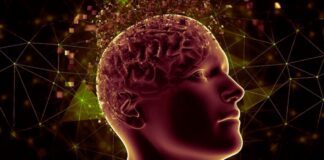Trending Now
FRESH STORIES
TECHNOLOGY
NASA’s New Mission: Unveiling the ‘Invisible Universe’ from Earth
A groundbreaking satellite has been successfully launched, offering an unparalleled view of Earth's microscopic marine life and minuscule atmospheric particles.
The NASA PACE mission successfully launched at 1:33 a.m. ET...
The Best Wired and Wireless Gaming Mice
A computer mouse greatly simplifies navigation and control on a PC or laptop, enhancing the user experience. But for players, those who bet through their 20Bet login, and web...
Big Booty Tech Nerd: Breaking Stereotypes in the Tech Industry
If you're a tech enthusiast, you might have come across Big Booty Tech Nerd, a popular online personality who has been challenging stereotypes in the tech industry. Despite her...
Technical Aspects of 844 Area Code in 2024 [Detail Guide]
If you've ever received a call from a phone number starting with 844, you may have wondered what it means. The 844 area code is a toll-free number that...
HEALTH
Addressing Common Dental Problems in Alexandria, VA
In Alexandria, VA, dental health is paramount. From routine check-ups to addressing dental emergencies, it's crucial to be aware of common dental problems that may arise. At Pediatric Dentistry...
How Nostalgia Positively Transforms Your Brain: Surprising Insights
According to a 2017 scientific study, one of the 27 fundamental feelings that people experience is nostalgia. Naturally, nostalgia is the melancholy emotion we experience when we recall a...
Most Common Genetic Conditions: Unveiling the Mysteries of Our DNA
In the intricate tapestry of human biology, genetic conditions stand out as fundamental threads that weave the diverse patterns of health and disease. The most common genetic conditions affect...
6 Health-Related Symptoms to Never Ignore
Every once in a while, you probably experience some kind of health concern, whether it’s a cut, a broken bone, or some kind of bug. Most of the time,...
ENTERTAINMENT
BUSINESS
TRAVEL















![Technical Aspects of 844 Area Code in 2024 [Detail Guide] 844 Area Code](https://articleify.com/wp-content/uploads/2024/01/844-Area-Code-324x160.jpg)













